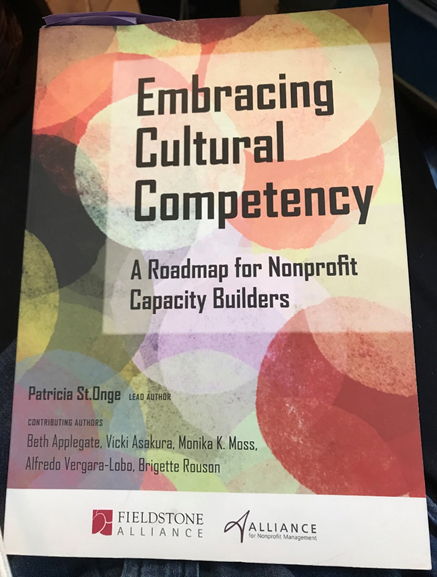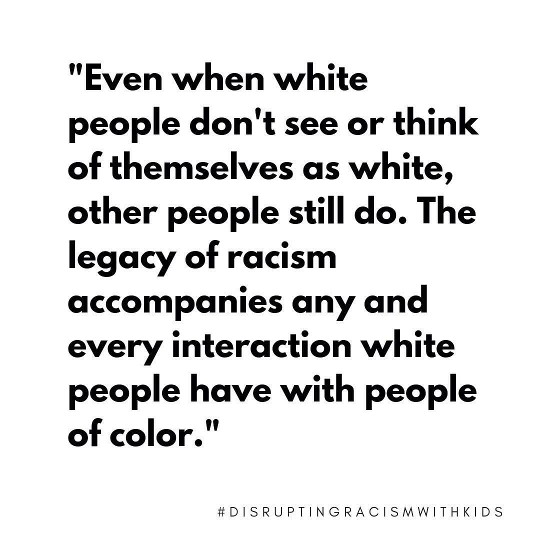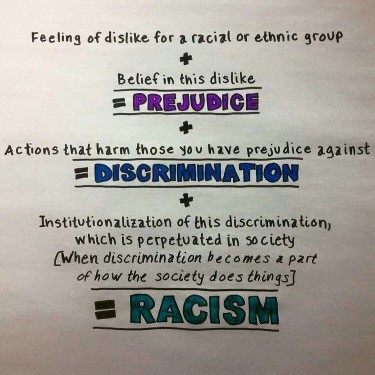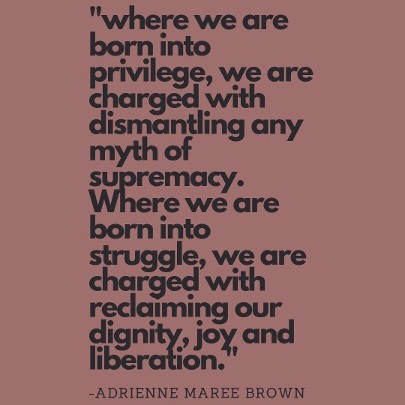Photo by Beth Applegate
Building Just Systems
Life in the 21st-century organization is increasingly a multi-cultural, multi-racial mix. Differences in race, ethnicity, gender, sexual orientation, religion, physical ability and more are ever-present. The task today for the brick and mortar and remote workforce is to build new systems, structures and processes that are inclusive of, and responsive to, differences in humans. ACG specializes in helping foundations, NGOs, agencies and institutions design and implement onsite and remote cultural equity, inclusion & justice (CEIJ) initiatives.
Our CEIJ strategies recognize that one training, one retreat, or one event is not sufficient. There must be an ongoing commitment and sponsorship from leadership to build knowledge, skills, and the confidence to begin discussions of power, privilege and racism. The CEIJ strategies must be closely connected to the organization's mission. ACG assists our clients in developing communication plans to keep leadership and staff informed.
ACG provides consultation, facilitation and executive coaching to white leaders on how to develop cultural norms in order to create a truly diverse, inclusive, equitable and just working environment. Members of the dominant group (white people) can unknowingly leash themselves due to social conditioning, blind spots and fear. Through ongoing coaching, we help white leaders uncover their unconscious thought and behavior patterns, and learn to take risks to become more courageous, vulnerable, authentic and proactive. Simultaneously, we also support white leaders to build their own racial literacy, and to learn about white racial development theory. With those tools, leaders can explore mindful approaches that avoid re-traumatizing Black and Indigenous People of Color (BIPOC) staff during internal discussions about power.
Let us help you build individual, group and structural capacity to incorporate differences, promote justice and increase equity within your ecosystem.
|
 |
Naming Our Proximity to Power and Privilege; Applying a Racial Justice Structural Analysis Lens
|
Naming our proximity to power and privilege is a key ingredient necessary to create new forms of just systems. Belonging and justice work is messy. Brené Brown calls on us to "Embrace the suck". ACG supports our clients with emotional, racial and cultural literacy, and with skills of compassion and empathy. We support brave leaders to navigate power dynamics and create an atmosphere conducive to courageous dialogue and openness, and to cultivating self-awareness and respect for differences. We help build the internal skills to navigate power dynamics mindfully in office-based and remote organizational cultures to avoid re-traumatizing BIPOC in discussions about power.
|

|
To catalyze the conditions for just systems, ACG engages our clients in exploring multiple perspectives and ways of knowing. We support your organization to know how to determine if something is a problem to solve, or a dilemma to leverage. In doing so, we teach you how to supplement "either/or" thinking with "both/and" thinking, also known as Polarity Thinking. ACG helps our clients tap the courage to explore and share the wisdom from lived experience, intuitive knowledge and experimentation. We supplement that with approaches rooted in theory, logic, and qualitative and quantitative analysis. We utilize different platforms and technologies to help our clients create a sense of belonging within their institutions.
We believe in centering relationships, learning and internal expertise and wisdom—especially with staff of color. We facilitate space for all to bring their full, unarmored selves to work—stories, histories, locations and experiences. Without surfacing stories and the multiple perspectives, and then making meaning out of the data gathered through an internal discovery process, organizations can lose access to their connections to each other, to their stories, and to the atmosphere in which they operate. ACG supports our clients to gain access to transformational approaches to creating a world in which all can thrive.
We help clients gather data about how their agency is working (or not) to advance belonging and justice. The data collected can help organizations see and understand different points of view, and to see and understand the impact of policies and practices. Data can also be used to test whether core values like organization belonging and justice are moving into measurable actions and behaviors that honor voices from different identity groups. ACG facilitates building a shared language and shared understanding of key concepts about how structural “isms”, power and privilege operate, and we facilitate the identification of the root causes. We partner with an internal cross-functional team that works closely with the ACG consultant team. We act as messengers for the process, and keep the work on the organizational radar. Our CEIJ work is rooted in embracing the full humanity of the organizations and communities they serve, and we mindfully facilitate our work to prevent re-traumatizing BIPOC participants in the discussions about power.
It is common in the client systems in which we work for there to be many different understandings and experiences of white culture norms, racism, and oppression and power. We believe that meaningful and sustainable CEIJ initiatives that result in just and power-sharing cultures must be guided by a set of principles, including:
 |
- CEIJ strategies must be closely connected to the organization’s mission, and the connection needs to be made explicit in all communications about the CEIJ initiative.
- Initiatives need to take both a systemic and individualistic approach. The systemic approach assesses the organization’s human management systems to ensure that policies, programs and management practices encourage and support inclusivity and are aligned with the espoused values of the organization. The individualistic or “inside out” approach uses the “Dare to Lead” tools developed by Dr. Brené Brown, along with other mindfulness and “use of self” tools and models. These support attitudinal changes that increase self-awareness and interpersonal skills of all organization members. With that, they can better engage engage in courageous, respectful and sustainable relationships with all stakeholders that cut across cultures and identities.
- In addition to formal policies, programs and practices, the organization’s cultural norms need to foster an appreciation and respect for diversity, and to create a welcoming, inclusive work environment that enables the organization to recruit, retain and better leverage a diverse staff to achieve the organization’s mission.
People must agree on the importance of a deeper understanding of the relationships between systemic power and privilege issues, and individual equity-related interactions.
- Any CEIJ-related learning activities need to be practical, applicable and useful with respect to participants’ everyday experiences with diversity, equity and inclusivity.
- Self-paced learning and just-in-time learning—focused on real people and situations that the learner interacts with over long periods of time—are more effective in supporting CEIJ initiatives than formal one-time training.
Everyone in the organization needs to be on the same page about CEIJ–talking the same language, working toward the same goals, learning and applying knowledge together across all functions.
|
|
|
|
 |
"Beth is wonderful to work with. She was able to truly help craft a fruitful group discussion about race in the arts from an interesting idea. She dexterously facilitated a complex conversation that could easily have devolved into name-calling and hurt feelings but that instead has benefited all the participants and led to further communication and deeper understanding of acceptance and community. Throughout the process of developing the event, Beth has been clear, thoughtful, and in every respect a delight to work with. I look forward to having the opportunity again."
- Customer Service Coordinator
|
 |
"Beth Applegate led our organization through a very intense, difficult, and revealing self-examination, in a very compressed time period. Her wisdom and experience forced all of us—board, executive director, and staff—to identify and come to grips with poor past practices and fundamental realities that threatened the organization's existence based in equity and inclusion root cause issues and set the stage for improvement at all levels of the organization. I honestly wonder whether anyone else could have led us through this process successfully. Fortunately, Beth did so and helped us see and implement a path toward stability and future growth. I am grateful."
- President and CEO
|
Contact Us About Building Just Systems
|
Phone
(301) 535-6539
Service Area
Nationwide & Worldwide
Follow Us On
 
|
|
|
|
|
|
|